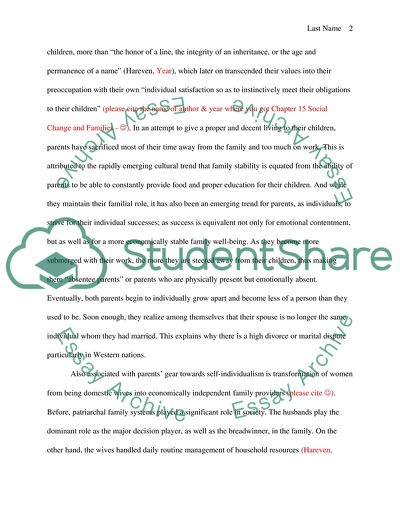Cite this document
(Sociology of Family & Family Change Report Example | Topics and Well Written Essays - 1750 words, n.d.)
Sociology of Family & Family Change Report Example | Topics and Well Written Essays - 1750 words. https://studentshare.org/sociology/1705453-sociology-of-family-family-change
Sociology of Family & Family Change Report Example | Topics and Well Written Essays - 1750 words. https://studentshare.org/sociology/1705453-sociology-of-family-family-change
(Sociology of Family & Family Change Report Example | Topics and Well Written Essays - 1750 Words)
Sociology of Family & Family Change Report Example | Topics and Well Written Essays - 1750 Words. https://studentshare.org/sociology/1705453-sociology-of-family-family-change.
Sociology of Family & Family Change Report Example | Topics and Well Written Essays - 1750 Words. https://studentshare.org/sociology/1705453-sociology-of-family-family-change.
“Sociology of Family & Family Change Report Example | Topics and Well Written Essays - 1750 Words”. https://studentshare.org/sociology/1705453-sociology-of-family-family-change.


